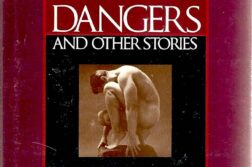THE 1990s saw a plethora of AIDS-related deaths in the literary community. Many, like Gordon Stewart Anderson (The Toronto You Are Leaving), Allen Barnett (The Body and Its Dangers), and Peter McGehee (Boys Like Us), were young writers just on the verge of realizing their talents, yet already so exceedingly gifted as to leave a breathtaking sense of loss at the little they left behind. Others, like Paul Monette (Borrowed Time: An AIDS Memoir) and Reinaldo Arenas (Before Night Falls), were well into their middle years with a considerable body of work and acclaim behind them. They had achieved much, yet much was left unaccomplished at their passing.
Richard Hall (1926–1992) was an exception. Sixty-six at the time of his death in 1992, he was among the most adept and technically accomplished writers of his generation, despite having produced only a small body of work. Fidelities, his third and last collection of short stories, is an eloquent work of immense power. Appearing the year of his death, it was his final publication and a worthy epitaph for his talent.
Hall’s output was not large in part because his work was so sparing, but it is the greater for all that. The stories in Fidelities give a sense of having been distilled and polished over time till they glow with depth and wisdom. Each is a gem in a collection that reflects a kaleidoscopic variety of themes and characters depicting the multiplicity of gay life.
Often simple on the surface, these tales resonate with profound wisdom at their core. In “Silence,” a father and his gay son discover they both have been hiding fundamental truths about themselves, as they learn what it means to come to terms with this hidden knowledge. In “Diamonds Are Forever,” a gay brother discovers that sometimes to lose a battle with his highly competitive sister, a lifelong foe, is the only way to win.
In “A Faustian Bargain,” a young concert violinist attempts to promote his talent by repressing his sexuality. The narrator’s condemnation of the man, who betrays both his talent and his love through his obsession with conforming, is so pointed and corrosive as to make readers see where each of us goes about our day-to-day lives making similar trade-offs for things we want but may never attain.
“Country People,” which deservedly won a Gaylactic Spectrum Award in 2005 when it was posthumously included in an anthology of speculative fiction, is perhaps the most moving story in this collection. A retired New York City teacher takes a job in a rural area while questioning whether he has anything relevant to say to a younger generation in the time of AIDS. Once there, he ends up battling a plague of a different sort—ignorance. This story leaps across genres and generations to show just how truly relevant and priceless knowledge can be.
Hall draws his readers so fully into his characters’ lives that we become emotionally invested in their fates. There’s a sense of cosmic justice at work here, bringing a chill of anticipation as to whether the characters will get what’s coming to them. It’s impossible to predict where he will take us, lending an almost palpable tension to the book as Hall keeps a masterful finger on the moral ambiguities of his stories and characters—and on our own personal frailties—at all times.
Jeffrey Round’s latest book is Lion’s Head Revisited, seventh in the Dan Sharp mystery series set in and around Toronto.





